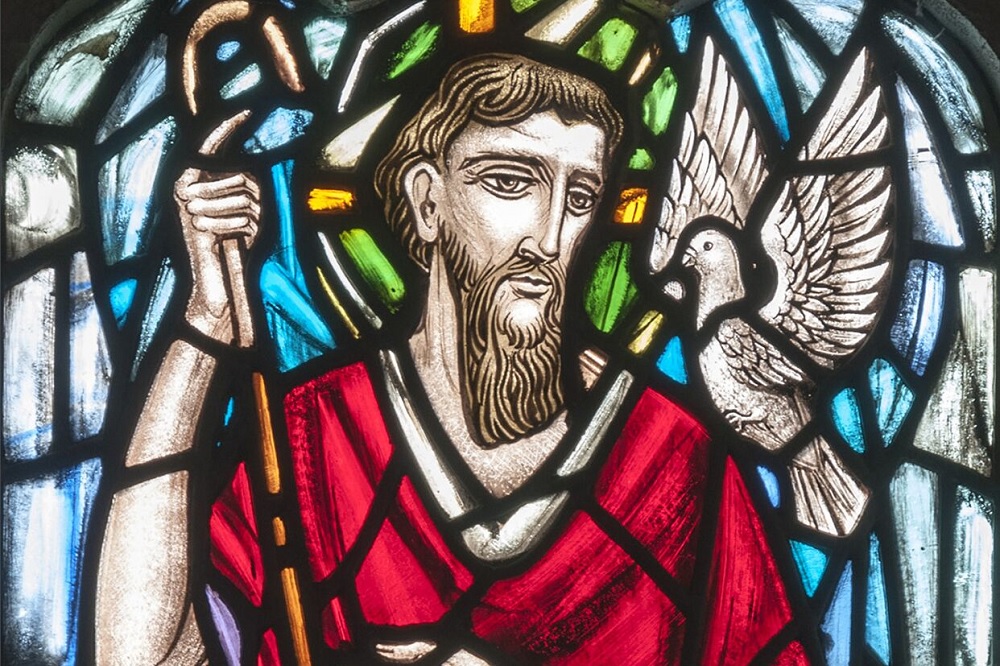Saturday of week 7 in Ordinary Time  Dewi Sant Welsh United Church, Toronto, ON Readings at MassLiturgical Colour: Green. Year: C(I).
Their ways cannot be hidden from his sightThe Lord fashioned man from the earth, to consign him back to it. He gave them so many days’ determined time, he gave them authority over everything on earth. He clothed them with strength like his own, and made them in his own image. He filled all living things with dread of man, making him master over beasts and birds. He shaped for them a mouth and tongue, eyes and ears, and gave them a heart to think with. He filled them with knowledge and understanding, and revealed to them good and evil. He put his own light in their hearts to show them the magnificence of his works. They will praise his holy name, as they tell of his magnificent works. He set knowledge before them, he endowed them with the law of life. Their eyes saw his glorious majesty, and their ears heard the glory of his voice. He said to them, ‘Beware of all wrong-doing’; he gave each a commandment concerning his neighbour. Their ways are always under his eye, they cannot be hidden from his sight.
The love of the Lord is everlasting upon those who hold him in fear. As a father has compassion on his sons, the Lord has pity on those who fear him; for he knows of what we are made, he remembers that we are dust. The love of the Lord is everlasting upon those who hold him in fear. As for man, his days are like grass; he flowers like the flower of the field; the wind blows and he is gone and his place never sees him again. The love of the Lord is everlasting upon those who hold him in fear. But the love of the Lord is everlasting upon those who hold him in fear; his justice reaches out to children’s children when they keep his covenant in truth. The love of the Lord is everlasting upon those who hold him in fear.
Alleluia, alleluia! Blessed are you, Father, Lord of heaven and earth, for revealing the mysteries of the kingdom to mere children. Alleluia!
It is to such as these little children that the kingdom of God belongsPeople were bringing little children to Jesus, for him to touch them. The disciples turned them away, but when Jesus saw this he was indignant and said to them, ‘Let the little children come to me; do not stop them; for it is to such as these that the kingdom of God belongs. I tell you solemnly, anyone who does not welcome the kingdom of God like a little child will never enter it.’ Then he put his arms round them, laid his hands on them and gave them his blessing. Universalis podcast: The week ahead – from 2 to 8 MarchThe Book of Job. Some Lenten exercises. Almsgiving: secret or public? How the Word on Fire conference went. (18 minutes) Christian Art Each day, The Christian Art website gives a picture and reflection on the Gospel of the day. The readings on this page are from the Jerusalem Bible, which is used at Mass in most of the English-speaking world. The New American Bible readings, which are used at Mass in the United States, are available in the Universalis apps, programs and downloads. |





